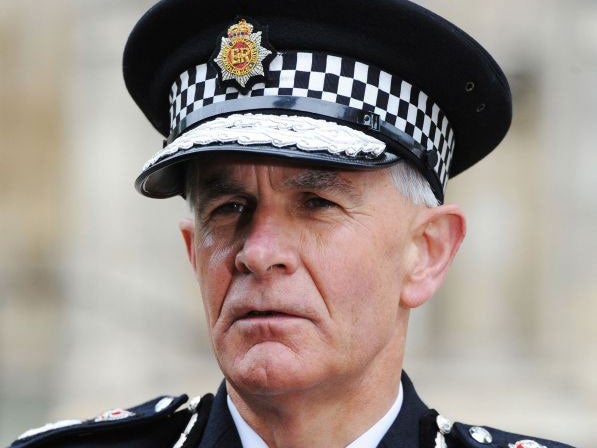One of Britain’s most senior police officers has said the country is in danger of a “drift towards a police state”.
Sir Peter Fahy, chief constable of Greater Manchester Police, told the Guardian newspaper that under the UK’s current trajectory officers might be forced to adopt the role of “thought police” in the fight against extremism.
He called for government and civil society to have a discussion about where the line between free speech and extremism should be set, arguing that it was not the security services’ job to define such limits.
Sir Peter stressed that he supported new counter-terrorism measures announced by the Government last week, however.
“If these issues [defining extremism] are left to securocrats then there is a danger of a drift to a police state,” he told the newspaper.
“I am a securocrat, it’s people like me, in the security services, people with a narrow responsibility for counter-terrorism. It is better for that to be defined by wider society and not securocrats.
“There is a danger of us being turned into a thought police. This securocrat says we do not want to be in the space of policing thought or police defining what is extremism.”
Greater Manchester Police is the third largest police force in the country after the London Metropolitan Police and Police Scotland.
Sir Peter holds a number of counter-terrorism positions, including vice chair of the Association of Chief Police Officers Terrorism and Allied Matters section, and a lead on the Prevent counter-extremism strategy.
Last month the Government outlined new powers and laws that it said would help fight terrorism, including plans to restrict ‘extremist’ speakers at universities and powers to relocate people suspected of terror offences.
Civil liberties groups branded the power-grab a “chilling recipe for injustice” and accused ministers of an attack on civil soviety.
“Yet again politicians resort to rushed legislation in an attempt to look tough in the face of terrorism,” said Shami Chakrabarti, the director of the rights group Liberty.
“Even our universities must read from ministers’ scripts on radicalisation. Another chilling recipe for injustice and resentment by closing down the open society you seek to promote.”
Subscribe to Independent Premium to bookmark this article
Want to bookmark your favourite articles and stories to read or reference later? Start your Independent Premium subscription today.


Join our commenting forum
Join thought-provoking conversations, follow other Independent readers and see their replies